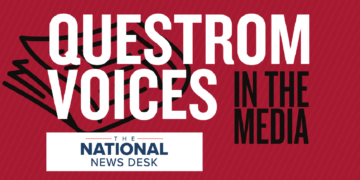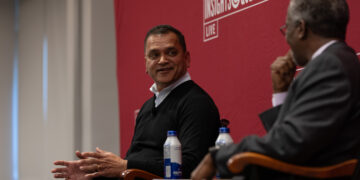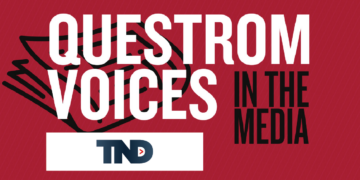Team learning has become more important than ever as remote work technologies enable easier collaboration across great distances. In this Insights Q&A, three Questrom professors specializing in Management and Organizations- Master Lecturer Dr. Sandi Deacon Carr, Senior Lecturer Dr. Paul “Hutch” Hutchinson, and Senior Lecturer Jennifer Mandolese- discuss their work on Questrom Team Learning, a project aimed at supporting the ability of students to learn and work in group settings.
What is Questrom Team Learning?
Questrom Team Learning (QTL) Services provides support to both undergraduate and graduate programs in business education. Its focus is on enabling successful academic team learning experiences by providing resources and support to both faculty and students who engage teamwork practices in their courses. QTL supports the teaching of best practices for teamwork, including virtual teams, and the development of critical collaboration and communication skills which are critical to career success and advancement.
What prepared you to study and advance team learning and collaboration?
Our team has been focused on team learning since the “Center for Team Learning” was created more than 25 years ago. Now known as Questrom Team Learning Services, QTL faculty and staff have focused on supporting team learning efforts at Questrom through research, team facilitation, faculty consultation, student team mediations, and through the development of the Team Learning Assistant.
Much of your research can be accessed via the Questrom Team Learning website. What motivated you to build this site?
We have observed the tremendous need for resources on teamwork and collaboration, not only at Questrom, but throughout Boston University. Many Questrom courses across all programs use teams, so providing resources and best practices through this website is extremely helpful to both faculty and students. Also, BU’s new general education program, the BU Hub, requires that all students across the university take courses or co-curriculars to develop skills in Teamwork/Collaboration, which makes this site an important resource for our university colleagues more broadly. It is a great opportunity to showcase the research and best practices we have developed, enabling Questrom to lead the way in the teaming conversation.
How did you develop these team building strategies? What research informed your recommendations?
It is important for us to reframe this question: rather than team building strategies, we prefer to reference teaming or teamwork and collaboration strategies. Those go much further than traditional team building approaches.
We have developed these strategies through a combination of research and professional/practical experience. Professional teambuilding experience brought two of us to Questrom in the first place, and all three of us have been involved in the course design and development of our required undergraduate course on teaming, in addition to other undergraduate electives and required courses in the Questrom Graduate programs, specifically the MS in Business Analytics, the Full Time MBA, and the Online MBA.
How does Questrom Team Learning differ from similar attempts to centralize collaborative learning processes?
One key differentiator for our approach at Questrom is that we take a more brain-based approach to developing teaming skills. Most academic disciplines operate in the neocortex, where performance can be developed through studying, exams, etc. But Teaming is behavioral and operates in the limbic system of the brain. The key difference is that you could perform well on an exam and demonstrate your intellectual understanding of a topic like emotional intelligence, but then lose your temper regularly in team meetings. It is the difference between “knowing” it intellectually and being able to “do” it in practice.
Developing these skills on the behavioral level requires more time and reflection as well as an iterative approach to the curriculum where students are cycling through numerous teams, each providing a bit more insight and growth for the student. This cyclical, reflective process allows for students to focus on their own self-awareness and personal growth.
Additionally, much of the teaming curriculum is embedded and integrated into larger capstone or core projects, meaning the lessons are delivered in service to a larger project rather than as an additional “teaming” project. This helps the students see the relevancy of the learning without adding extra work into the curriculum. Many of our peer institutions attempt a more intensive approach of teaming, especially at the graduate program, but a one-week deep dive of content does not allow for the growth needed to perform the skills needed for effective teaming.
How do you keep QTL up to date on the latest innovations in this field of study?
We are constantly researching to update our knowledge as well our ability to deliver it as part of our curriculum and QTL consulting services. We have developed these strategies through classics like Katzenbach & Smith’s The Wisdom of Teams, Barkley, Major, & Cross’s Collaborative Learning Techniques, and great contemporary HBR articles like Haas & Mortensen’s “Secrets of Great Teamwork”. We are also avid consumers of TED Talks and podcasts (Teamistry and WorkLife with Adam Grant are two great examples) to expand our thinking and ground it in current organizational practices. Teaming also requires a variety of skills such as decision making, emotional intelligence, feedback, conflict resolution, etc. Each of those areas have their own base of research and serve as contributions to the overall curriculum of teaming.
What do you feel is most important for people to know about best practices for effective teamwork and collaboration?
The best teaming practices focus on both task and process concerns. The tasks are the “stuff” that needs to be completed, but the process is the “how” we get it done. Teams often rush into task-oriented delegation as a way to work together, but only focusing on the tasks means you miss the opportunities provided by effective team process that are based in research and best practices. In our experience, ignoring one or the other (where you are part of or facilitating teams) creates the process losses that make so many people fear teamwork.
Every team is different, and members need to spend the time to agree on how they are going to accomplish their established tasks, but also to consider how they will make decisions, address conflict, and what behaviors they expect of each other in order to make a team function well. Humans are programmed to be social, but this tends to mean that we take a lot for granted in each new team experience, so part of the fun of our work is helping teams recognize these expectations we naturally form for others and help them construct norms that the entire team can agree on.
How can students and faculty members access and utilize the Questrom Team Learning website?
The site is designed with separate sections for Faculty and Student Resources. The Faculty Resources section is meant to help faculty who are considering using teams, or who have decided to use teams in their courses. It highlights key decisions that faculty need to make as well as best practices for setting up teamwork success within the context of a course.
The Student Resources section is aimed at helping students navigate the process of teaming – from the initial team introductions, to setting expectations, to managing performance, providing peer feedback, and resolving conflicts.
ABOUT OUR EXPERTS
Dr. Sandi Deacon Carr is the Faculty Director of Questrom Team Learning Services. She supports the many student teams and courses that engage team learning throughout the undergraduate program at Questrom. She collaborates with faculty to develop the teaming curriculum at Questrom, and more broadly at the university through the BU Cross-College Challenge. She teaches courses in leadership, organizational behavior, teamwork and collaboration, and career management, and is co-author of The Team Learning Assistant.
Dr. Paul J. “Hutch” Hutchinson is a Senior Lecturer at Boston University Questrom School of Business teaching in both the undergraduate and graduate programs. He has worked with over 50,000 participants in teambuilding and leadership programs since he began practicing experiential education in 1996 and has facilitated professional managers and executive teams from industry and nonprofit organizations to help them develop effective team processes.
Jennifer Mandolese is a Faculty Consultant/Facilitator for Questrom Team Learning, where she supports faculty regarding team curriculum design. She is the Administrator for the Team Learning Assistant software program, a team management tool that improves teaming experiences.
ABOUT OUR EXPERTS

SANDI DEACON CARR
Master Lecturer, Management & Organizations
Dr. Sandi Deacon Carr is the Faculty Director of Questrom Team Learning Services. She supports the many student teams and courses that engage team learning throughout the undergraduate program at Questrom. She collaborates with faculty to develop the teaming curriculum at Questrom, and more broadly at the university through the BU Cross-College Challenge. She teaches courses in leadership, organizational behavior, teamwork and collaboration, and career management, and is co-author of The Team Learning Assistant.

PAUL J. “HUTCH” HUTCHINSON
Senior Lecturer, Management & Organizations
Dr. Paul J. “Hutch” Hutchinson is a Senior Lecturer at Boston University Questrom School of Business teaching in both the undergraduate and graduate programs. He has worked with over 50,000 participants in teambuilding and leadership programs since he began practicing experiential education in 1996 and has facilitated professional managers and executive teams from industry and nonprofit organizations to help them develop effective team processes.

JENNIFER MANDOLESE
Senior Lecturer, Management & Organizations
Jennifer Mandolese is a Faculty Consultant/Facilitator for Questrom Team Learning, where she supports faculty regarding team curriculum design. She is the Administrator for the Team Learning Assistant software program, a team management tool that improves teaming experiences.






















